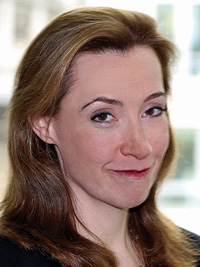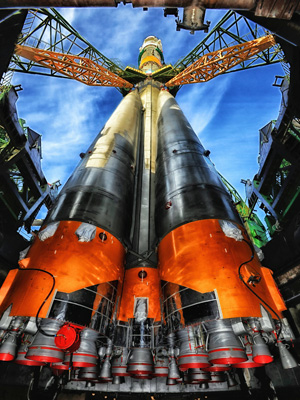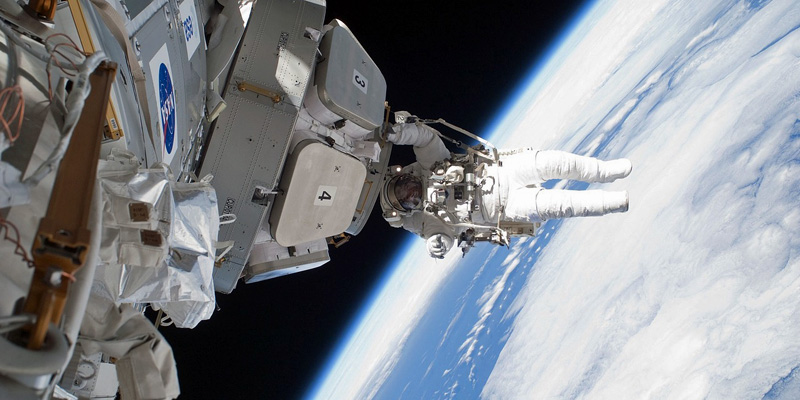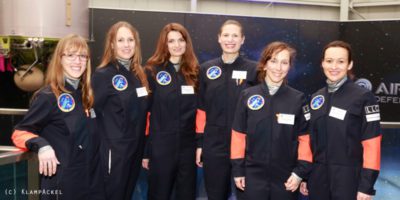Joanne Wheeler MBE is a partner in the Tech & Comms Group of law firm Bird & Bird and she leads the firm’s satellites specialist industry initiative, focusing on communications, satellite and space regulatory policy, together with commercial contracts and public private partnerships. She has previously worked at both the European Space Agency (ESA) as well as Ofcom and today sits on the Council of the industry body UKspace, and has represented the UK at the United Nations space meetings in Vienna. Joanne is co-chair of the Satellite Finance Network (SFN) and in January 2017 she was awarded an MBE in the New Year honours list for her services to the UK space industry.

“…The challenges I face are around finding solutions to issues where there is no easy answer…”
Choosing space law: Practice makes perfect
I have been interested in space since I was nine years old. I could choose any topic to write about for a school project, so I wrote about astronomy. I still have the blank bound book that I populated with my research. I then chose mostly international law subjects at undergrad level and was taught space law by Professor Lyall at the University of Aberdeen and attended the first ever ESA (European Centre for Space Law) course on space law and policy. Not only did I enjoy every minute, but I was absolutely inspired.
I was keen to explore international law in practice – the law between states and governing cooperation. I was fascinated at the power of what could be achieved when states collaborated and diverse people worked together. I very much enjoyed working at ESA in particular, and am lucky to have some excellent, innovative companies (both established and start-ups) and individuals who I work with now.

However, in 2017 and in the UK – it is a privilege to be a space lawyer. Things are happening that I never thought possible in my lifetime – such as the draft Spaceflight Bill.
What my role involves
On a day to day basis, my role involves anything related to the space, satellite and communications industries such as:
- Drafting launch services contracts;
- Negotiating procurement contracts;
- Obtaining UK Space Agency licences;
- Helping companies raise finance;
- Working with companies (large and small) looking to come into the UK or export from the UK;
- Working to amend or influence regulation at a national, European or international level;
- Providing advice on various regulatory spectrum issues across Europe and beyond;
- “Match-making” investors with companies or companies with companies;
- Advising on Earth observation issues;
- Drafting services agreements;
- Advising on hosted payloads;
- Advising on in-orbit servicing missions;
- etc. etc.
The challenges I face are around finding solutions to issues where there is no easy answer; navigating through law (national and international), regulation, policy and commercial awareness to find enabling ways forward.
International collaboration in space
International collaboration and partnerships are increasingly important moving forward, with new technologies such as large constellations and in-orbit servicing.
The United Nations Committee on the Peaceful Uses of Outer Space (UNCOPUOS) was responsible for the development of the international legal regime governing outer space law. The Committee now has over 70 members (with more to join) and is one of the largest committees in the UN. The membership is supposed to represent the interests of all nations. There are new topics on the agenda of UNCOPUOS, such as asteroid mining.
Changing culture
In a previous role I worked with Airbus, Inmarsat, the Satellite Applications Catapult and many other large companies on something called The Athena Project. This involved a professional photographer (the incredibly talented Leonora Saunders) who took photos of women in industries with less than 10% of women in them and we provided a write-up of each, including the challenges they faced and any advice to others. This turned into an exhibition which was taken round several schools. The responses from school children were positive – they need to be encouraged and culture changed.
The space sector as a whole is sadly still rather male dominated, but it is improving. There are some excellent initiatives such as WISE Campaign, Women in STEM, STEM Women, etc. It is important to encourage women from an early age to take science and engineering subjects, for example.
Blazing a trail for women in the space sector
I am truly honoured to have been awarded an MBE in January – and very proud that it is for services to the UK space sector. I feel it needs to be divided into 20 pieces and handed out to others in the sector too.

I would also like to grow the Satellite Finance Network, collaboratively and for the benefit of the industry and hope to work to shape enabling regulation in the UK and elsewhere; onwards and upwards…





